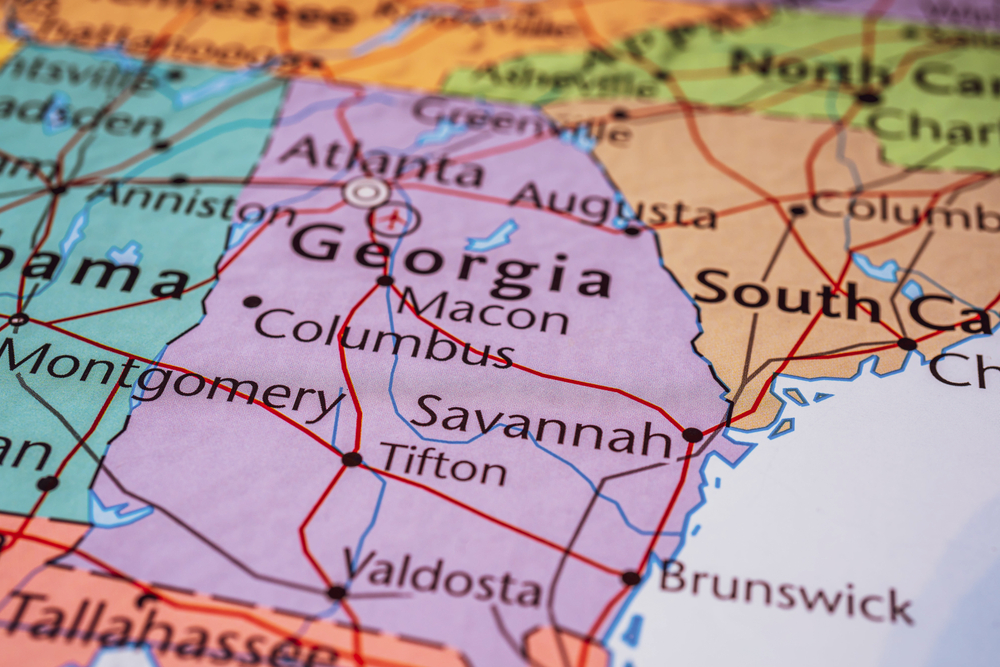ATLANTA, GA — Yesterday, the Lawyers’ Committee for Civil Rights Under Law, the Southern Poverty Law Center (SPLC), ACLU of Georgia, and ACLU National Voting Rights Project filed an amicus brief in a lawsuit challenging two new rules passed by the Georgia State Elections Board (SEB). The rules threaten to upend Georgia’s longstanding mandatory election certification rules and disenfranchise Georgia voters. The brief was filed on behalf of five Georgia voters and the Georgia Conference of the NAACP. If allowed to go into effect without constraint, the rule changes could allow partisan local election board members to obstruct the counting of ballots based on their own political preferences in defiance of Georgia law.
The amicus brief highlights several potential dangers posed by these new regulations, including:
- New Investigatory Powers: One of the most concerning rule changes, proposed by Fulton County Board member Michael Heekin, could allow county boards to delay certification of local election returns while they conduct their own general “inquir[ies]” into the election. A related rule change would also allow individual county board members to demand to “examine all election related documentation” before certifying the results. These changes invite partisan local election board officials to attempt to delay certification and jeopardize Georgia’s compliance with mandatory state and federal certification deadlines.
- New Pre-Certification Requirements: The rule changes also add confusing and untested new reconciliation requirements prior to certification that do not exist under Georgia law and appear to invite county election boards to discount ballots by claiming that they are erroneous or fraudulent. These rule changes could also cause local certification delays that threaten to disenfranchise Georgia voters.
“The State Election Board’s new rules threaten to introduce an unprecedented level of chaos into what should be a straightforward certification process. These changes effectively invite individuals or groups to challenge election results when they disagree with voters’ choices, undermining the democratic process,” said Ezra Rosenberg, co-director of the Voting Rights Project at the Lawyers’ Committee for Civil Rights Under Law. “While these rules purport to protect the vote, they actually create opportunities that will jeopardize the votes of thousands of citizens, placing the fate of our democracy in the hands of unelected officials. This is voter disenfranchisement under another name and on a dangerously grand scale.”
“Democracy is not strengthened by putting certification and the right to vote at risk. Georgia has long had a secure and trusted election process. These regulations could confuse and delay the final certification of election results—all of which are direct threats to the voting rights of Georgians.” — Poy Winichakul, senior staff attorney, Democracy, Voting Rights, SPLC.
“We filed this amicus brief to give voice to voters challenging new State Election Board rules that threaten to insert chaos, delay, and the threat of disenfranchisement into the election certification process. The brief is on behalf of Georgia voters and ensures that their voices are amplified in this legal challenge. No actor is more important to our democratic process than the voter, and we are honored to represent them to prevent political operatives from weaponizing the certification process in Georgia.” — Caitlin May, voting rights staff attorney, ACLU of Georgia
“County election boards have a clear duty under Georgia law to faithfully report and timely certify their election returns. The State Election Board’s last-minute rule changes inject uncertainty and confusion into certification and threaten the fundamental right to vote.” — Sophia Lakin, Director, ACLU Voting Rights Project
We urge the court to grant relief to prevent the SEB rules from disrupting our democratic process. Voters across Georgia deserve a fair, transparent, and timely certification process that respects the will of the people.
Read the filing here.
###
About the Lawyers’ Committee for Civil Rights Under Law:
The Lawyers’ Committee for Civil Rights Under Law is a nonpartisan, nonprofit organization, formed in 1963 at the request of President John F. Kennedy to mobilize the nation’s leading lawyers as agents for change in the Civil Rights Movement. Today, the Lawyers’ Committee uses legal advocacy to achieve racial justice, fighting inside and outside the courts to ensure that Black people and other people of color have the voice, opportunity, and power to make the promises of our democracy real. The Lawyers’ Committee implements its mission and objectives by marshaling the pro bono resources of the bar for litigation, public policy, advocacy and other forms of service by lawyers to the cause of civil rights.
About the Southern Poverty Law Center:
The Southern Poverty Law Center is a catalyst for racial justice in the South and beyond, working in partnership with communities to dismantle white supremacy, strengthen intersectional movements, and advance the human rights of all people.
About the ACLU of Georgia:
The ACLU of Georgia enhances and defends the civil liberties and rights of all Georgians through legal action, legislative and community advocacy, and civic education and engagement.
About the ACLU:
The American Civil Liberties Union (ACLU) is a nationwide, non-partisan organization of more than a half-million members, countless additional activists and supporters, and 53 affiliates nationwide dedicated to preserving and defending the fundamental rights of individuals under the Constitution and laws of the United States.


